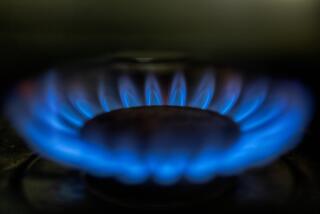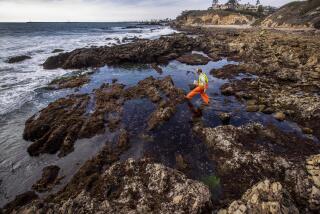U.S. House approves pipeline safety bill
A pipeline safety bill that gained momentum after last year’s deadly natural gas explosion in Northern California won House approval Monday in a rare display of bipartisanship.
The measure, passed on a voice vote, is expected to move quickly through the Senate to President Obama for his expected signature. Its approval comes 15 months after a pipeline explosion in San Bruno killed eight people, injured dozens and destroyed 38 homes.
“This bill takes a very important step forward in improving pipeline safety,” said San Bruno’s congresswoman, Jackie Speier (D-Hillsborough). “But there is more that must be done.”
The bill would double the maximum fine for safety violations to $2 million, authorize more pipeline inspectors and require automatic shut-off valves on new or replaced pipelines “where economically, technically and operationally feasible.”
But it does not include a National Transportation Safety Board recommendation to require such shut-off valves on existing pipelines in heavily populated areas.
Requiring automatic and remote-controlled shut-off valves on existing pipelines has been debated in Congress at least since a 1994 pipeline blast in Edison, N.J., where it took 2 1/2 hours to manually shut off the gas. In the San Bruno blast, utility workers needed nearly 95 minutes.
California has taken steps to strengthen pipeline safety rules, including requiring automatic shut-off valves in vulnerable areas, Speier noted. But, she added, “When you saw that ball of fire raging for an hour and a half before they were able to turn off the gas, that is something that has to be addressed on a national basis.”
The requirement has run into industry opposition because of the cost. Still, Speier is pushing Transportation Secretary Ray LaHood, whose department oversees pipelines, to enact additional regulations, even lobbying him at the recent White House congressional holiday ball.
Rick Kessler, vice president of the Pipeline Safety Trust, an advocacy group formed after three people were killed by a 1999 pipeline explosion in Bellingham, Wash., called the measure modest but nonetheless welcome from a Republican-controlled House that has been wary of new regulation.
“During the last year and a half, a series of tragic failures has made it clear that we need stronger pipeline safety laws,” Rep. Henry A. Waxman of Los Angeles, top Democrat on the House Energy and Commerce Committee, told colleagues Monday.
The Pipeline Safety, Regulatory Certainty and Job Creation Act easily passed the often bitterly divided chamber, in large part because of high-profile incidents that have affected the districts of members of both parties in the last few years. They include a pipeline explosion that killed five in Allentown, Pa., and pipeline ruptures that spilled oil into the Kalamazoo River in Michigan and Yellowstone River in Montana.
Energy and Commerce Committee Chairman Fred Upton (R-Mich.) cited a 20,000-barrel oil pipeline spill in a tributary of the Kalamazoo River just outside his district. “The spill forced dozens of families out of their homes, in many cases permanently, and caused extensive environmental damage to a waterway many residents enjoyed for fishing and canoeing,” he said.
In response to the San Bruno blast, the bill requires pipeline operators to confirm, through records or testing, the maximum safe operating pressure of older, previously untested pipelines in populated areas.
Sen. Dianne Feinstein (D-Calif.) said the bill “puts in place long overdue safety improvements.”
More to Read
Start your day right
Sign up for Essential California for news, features and recommendations from the L.A. Times and beyond in your inbox six days a week.
You may occasionally receive promotional content from the Los Angeles Times.







